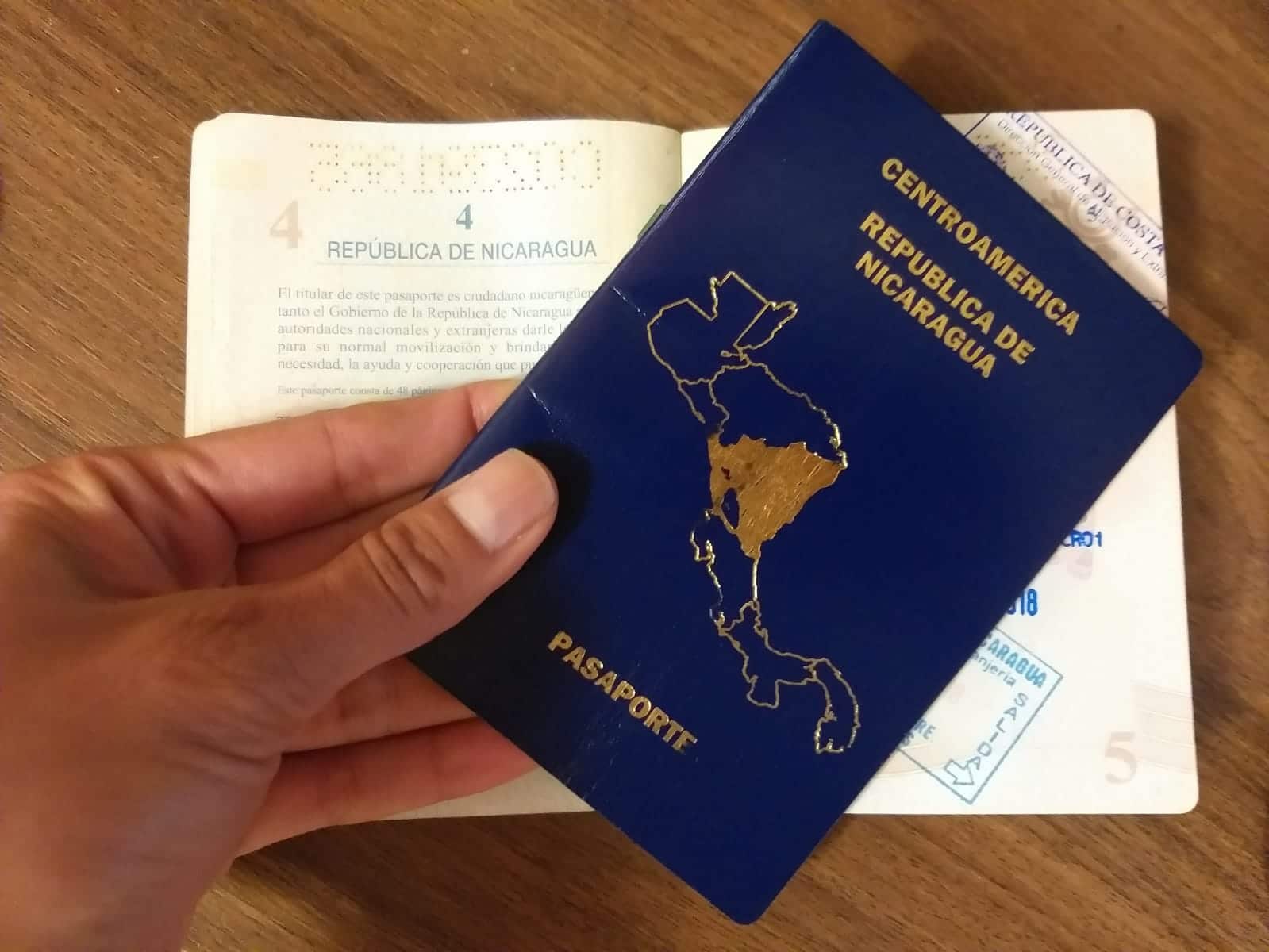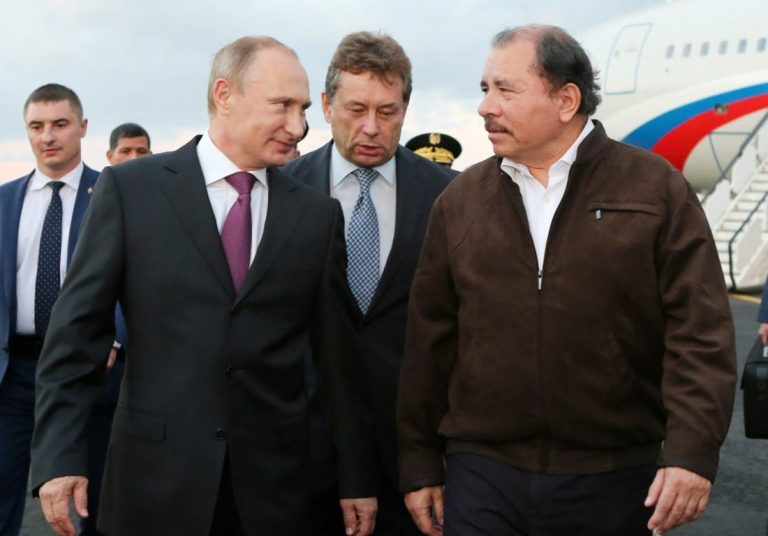17 de abril 2022

Nicaragua: Public Employees Hindered from Traveling to USA

PUBLICIDAD 1M
PUBLICIDAD 4D
PUBLICIDAD 5D
In Ukraine and Nicaragua someone has lowered his thumb to kill and destroy, in order to cause the greatest possible pain

Experts analyze “threat
The Russian invasion of Ukraine shows every day to what extremes one-person authoritarian regimes can go when they have atomic weapons. The repressive measures that Ortega takes every day to exterminate the last vestiges of freedom in Nicaragua, point to the levels of voraciousness that a dictator can reach with no other power than his Praetorian State. If Putin embodies the maximum degree of evil unleashed, Ortega occupies several lesser degrees on the scale of cruelty. Not because he does not want to, but because he has no more power.
Both degrees share the same traits of a type of behavior that has the intention to cause harm to others and their surroundings. Without being exhaustive, it can be said that evilness poses the following features: lack of scruples, absence of empathy with the pain of others, deliberate action to cause harm and denial of the crimes committed.
The lack of scruples is reflected in the complete lack of qualms both characters show, especially when it comes to ordering actions that will cause death and destruction. In the last forty-some days we have been learning the geography of Ukraine by the trail of death and destruction left by where the invading army has been passing: Mariupol, Bucha, Kramatorsk and Borodianka, all martyr cities of fascist barbarity who have joined Lidice, Gernika, Marzabotto, Srebrenica, and an endless etcetera. Before them the executioners did not hesitate a moment between the extermination and the lives of thousands of people who live there.
The same was done by the top Ortega leaders faced by unarmed protestors in defensive barricades that the population had raised, or as in the case of Marcelo Mayorga in Masaya or the students entrenched in the UNAN-Managua: the response was the attack of armed fanatics who, without doubting a second, opted for extermination without given the least value to human life.
Contrary to expectations, neither Putin nor Ortega seem to show any empathy to the pain of the victims of their crimes. Rather, they seem to feed on the suffering they cause. The more torment, the more they see the objectives of their strategies realized, which are none other than the annihilation of the adversaries who have dared to stand between their plans and absolute domination.
For them, there are no scenes of human suffering that merit an ounce of mercy. Instead, they see an opportunity to increase the damage in every train station overcrowded by those who try to flee from the horrors of war, in every caravan of those trying to escape from atrocities and in every basement that serves as shelter.
The same occurs in Nicaragua with political prisoners. Despite having captured them in their homes and not in a guerrilla camp or belonging to clandestine organizations that planned to overthrow the dictatorship by armed struggle, political prisoners are treated with the intention of inflicting as much physical and emotional harm as possible, subjecting them to inhumane prison conditions, malnourished, in solitary confinement without even the right to receive family visits. In Ukraine as in Nicaragua, the end (impose tyranny) attempts to justify the means (savagery).
The bombing against civilian targets, the massacres of Bucha, Borodiank and Mariupol, are linked to the same annihilating instinct that in Nicaragua fired against a boy who was only bringing water to those who protested, the same blind rage that opened fire with snipers against a Mother’s Day March and tortures every day the people it keeps in captivity during the last four years and more. Is there no comparison between the massacres in Ukraine and the crimes in Nicaragua? We must go to the roots of both events to find out.
In each case, the intellectual authors had before them the dilemma of good and evil, between not ordering to pull the trigger —out of respect to self-determination and the dignity of each people— and ordering to fire obeying the moral vacuum of their leaders. In both cases they deliberately chose to do evil, to kill, to destroy, to torture and to rape, in order to subdue those who disobeyed the designs of the highest leadership. In Ukraine and in Nicaragua someone has lowered its thumb to kill and destroy, to cause the greatest pain possible and to annihilate, to erase from the map everything that bothers the dictators.
Faced with the evident consequences of their actions, Putin and Ortega have reacted alike with denial, with a mixture between foolishness and cynicism, with the distant hope of convincing their fanatics. The Russian has enlisted his foreign minister to play the sad role of “Comical Ali,” Saddam Hussein’s spokesman who insisted on denying the imminent fall of the regime. According to Lavrov, the Ukrainians have bombarded themselves, have placed actors on the streets of Bucha pretending to be dead and have massacred their own children, or simply has denied that all this has happened.
Ortega has not acted differently. According to his propagandists, Alvarito Conrado was shot by unarmed students and never said anything about having denied him medical care. But the last straw was that he denied that the Mother’s Day massacre had occurred. Much later, he has denied treating political prisoners brutally, remains silent about prison conditions and tries to hide behind the supposed national sovereignty to proclaim his right to the extermination of opponents, without being held accountable by any international organization to which he belongs.
Sheltered by this absurd logic, as if national sovereignty were a shield of impunity, Putin and Ortega represent two levels of a scale of evil in which equally execrable characters such as Maduro, Diaz Canel and Myanmar’s military gorillas also figure, all of them licensed to kill.
Ukrainians and Nicaraguans, as well as Venezuelans, Cubans, and Burmese, suffer the same evilness under the same playbook of the criminals: to plunge people into horror as punishment for wanting to freely exercise their right to self-determination, an obstinate vocation that refuses to close the door to hope.
*This article was published originally in Confidencial and traslated by Havana Times
PUBLICIDAD 3M
Politólogo y sociólogo nicaragüense, viviendo en España. Es municipalista e investigador en temas relacionados con participación ciudadana y sociedad civil.
PUBLICIDAD 3D